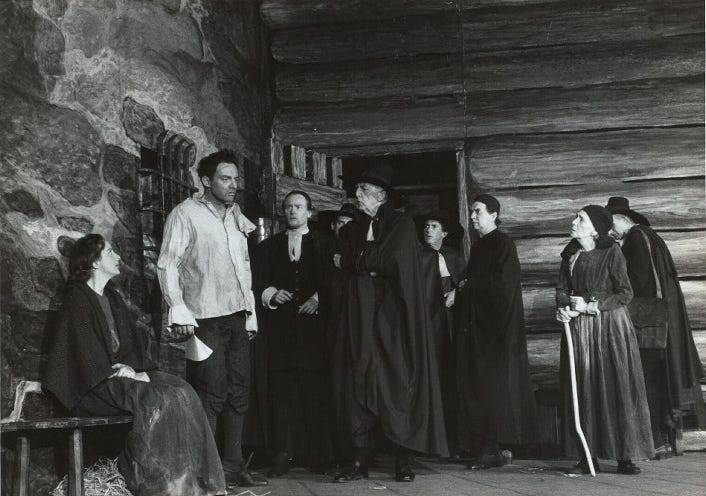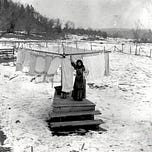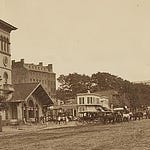It is June 17, 2000.
Arthur Miller, the playwright, is reflecting on his contempt of Congress conviction and Hollywood blacklisting during the McCarthy era of the 1950s.

Miller had become a target of the US House Un-American Activities Committee after the staging of his play, “The Crucible,” a story about the Salem witch trials of the 1690s.

In the play, Miller had drawn a parallel between the conviction and execution of Salem women on baseless charges of witchcraft and the persecution of people accused of being communist in the 1950s.

In subpoenaed testimony before the Committee, Miller had refused to identify people who had attended meetings of Communist writers many years before, resulting in his conviction for contempt of Congress.1
Now, writing more than forty years later, Miller says the hunt for communists during the 1950s became an ideological war driven by ‘the radical right’ which ‘reached hysterical proportions.’

From Miller’s essay:
“The heart of the darkness was the belief
that a massive, profoundly organized conspiracy was in place
and carried forward mainly by a concealed phalanx of intellectuals,
including labor activists, teachers, [and] professionals,
sworn to undermine the American government…
“It is always with us, this anxiety,
sometimes directed towards foreigners, Jews, Catholics,
fluoridated water,
aliens in space, …
homosexuality,
or the [IRS].”


‘Evidence is effort,
while leaping to conclusions is a wonderful pleasure
which provides an escape from daily tedium
with entertaining revelations,
news
and surprises which confirm the conspiracy.’

***
It was a time of lazy anti-intellectualism
where fact-free hyperbole got attention and votes.




Just like today.
******************************
I’ll see you tomorrow.
— Brenda
Miller’s full text can be found here.













